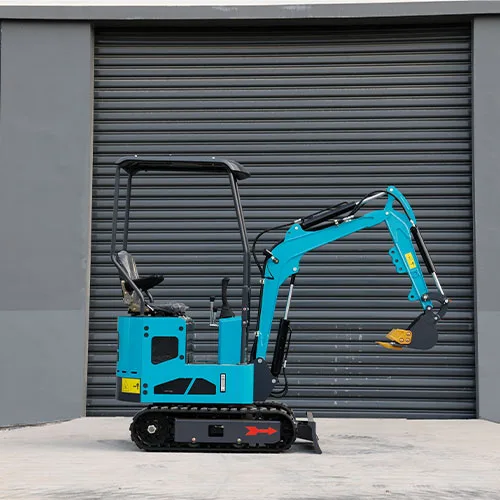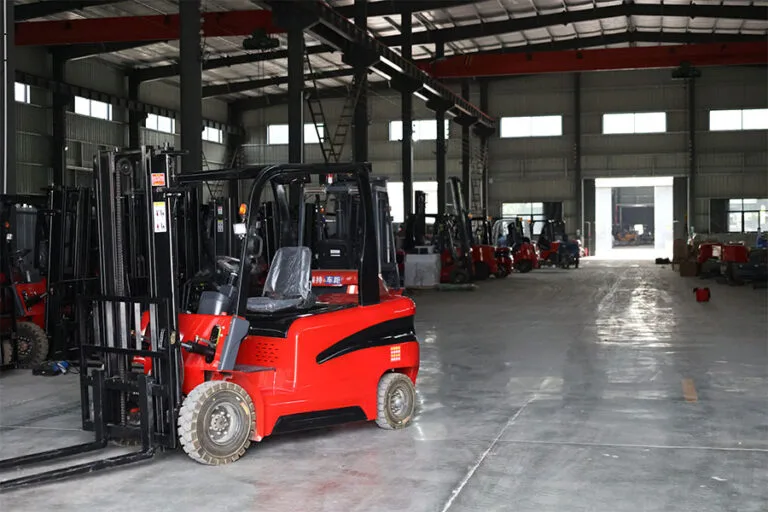Efficient Digging Starts with a Small Garden Excavator
I’m thrilled to have you here! Before we dive into the content, let’s stay connected. Join me on my social media platforms for more insights, community engagement, and regular updates. Here’s where you can find me:
📌 Facebook: Shandong Huaying International Trade Co., Ltd.
Now, let’s embark on this journey together. I hope you find the content here not only insightful and engaging but also valuable to your interests. Let’s learn, grow, and connect!
Table of Contents
Introduction

Choosing the right equipment is vital in construction, mining, landscaping, or any heavy-duty project. Best rated excavators have become a popular search for many professionals looking for reliable, efficient, and durable machines. However, even with the best intentions, many buyers make costly mistakes that affect their investment and project outcomes. This article explores the worst mistakes when choosing best rated excavators and offers guidance to help you make informed decisions.
Investing in best rated excavators ensures better productivity, enhanced safety, and longer equipment lifespan. But the abundance of options, technical specifications, and industry jargon can confuse even seasoned buyers. Avoiding these mistakes will save you money, time, and headaches.
Mistake 1: Ignoring Your Project’s Specific Needs
One of the most frequent and costly mistakes buyers make when selecting best rated excavators is relying solely on popularity or ratings without considering the unique requirements of their specific projects. Not all excavators, no matter how highly rated, will fit every job site or project type. The term “best rated excavators” covers a broad range of machines that differ greatly in size, power, operational capabilities, and specialized features.
For example, a compact excavator praised for its maneuverability and efficiency in urban construction zones may struggle or fail entirely on a heavy-duty mining site, where digging depth, reach, and engine power are crucial. Similarly, a machine designed for landscaping or residential work might lack the fuel efficiency or durability required for extended heavy earthmoving.
When evaluating best rated excavators, it is vital to conduct a thorough analysis of your project’s specifics, including:
- Soil type and terrain conditions: Rocky, sandy, muddy, or uneven terrain demands different attachments and engine torque.
- Project scale and duration: Short-term, small-scale jobs might prioritize ease of transport and quick setup, whereas long-term large projects may demand durability and fuel efficiency.
- Digging depth and arm reach: Excavators with varying boom lengths and bucket capacities suit different digging requirements.
- Power needs and fuel efficiency: Projects with continuous operation benefit from machines with lower fuel consumption and high power-to-weight ratios.
- Transport and maneuverability: Accessibility of the site can limit the size and weight of machines suitable for transport.
Failing to align these technical and operational factors with your project’s needs usually results in underperformance, increased maintenance, premature wear, and even costly early replacement. The lesson here is clear: the best rated excavators must also be the most appropriate for your particular job conditions.
Mistake 2: Overlooking Maintenance and Service Support


Purchasing best rated excavators without considering the availability and quality of maintenance and after-sales support is another critical mistake that many buyers overlook. Even the highest-rated machines can turn into expensive liabilities if parts are scarce or if skilled service technicians are unavailable nearby.
Excavators require routine maintenance such as oil changes, filter replacements, hydraulic system checks, and part replacements to stay in top condition. Unexpected breakdowns or delays in repairs can lead to prolonged downtime, impacting project schedules and profitability.
When assessing best rated excavators, make sure to consider the following service-related factors:
- Local dealer network and service centers: Proximity to authorized service locations can drastically reduce downtime.
- Genuine spare parts availability: Machines supported by an ample supply of OEM parts maintain their reliability and performance.
- Manufacturer’s technical support and operator training: Some brands provide training programs and on-site troubleshooting assistance, which improve machine longevity and operator competence.
- Warranty and service contracts: Understand the warranty terms, including what components are covered and for how long. Service contracts may offer preventative maintenance schedules that extend machine life.
A reliable and accessible support infrastructure ensures that your best rated excavators remain operational, maintain peak performance, and retain their resale value over time. Investing time in researching service capabilities before purchase can save considerable costs and headaches down the road.
Mistake 3: Focusing Only on Price Instead of Total Cost of Ownership of Best Rated Excavators
While initial cost is an important factor, focusing solely on purchase price without considering the total cost of ownership (TCO) is a mistake when choosing best rated excavators. TCO includes fuel consumption, maintenance, repair, depreciation, and resale value.
| Cost Factor | Description | Impact on TCO |
|---|---|---|
| Initial Purchase Price | Upfront cost of the excavator | High upfront cost might mean better quality or features |
| Fuel Efficiency | How much fuel the excavator consumes | Directly affects operating costs |
| Maintenance Cost | Frequency and cost of repairs | Affects downtime and expenses |
| Resale Value | Value after years of use | Determines long-term investment returns |
| Operator Training | Costs to train operators | Impacts efficiency and safety |
Understanding these factors helps buyers choose best rated excavators that provide the best long-term value rather than just the lowest initial price.
Mistake 4: Neglecting to Evaluate Technological Features
The construction equipment industry is evolving rapidly, with technological advancements improving The construction equipment industry is advancing at an unprecedented pace, with new technologies continuously emerging that significantly boost productivity, enhance safety, and optimize fuel consumption. Many buyers make the mistake of overlooking these modern features when selecting an excavator, focusing only on traditional specs like engine power and bucket size. However, failing to consider technological innovations can cause you to miss out on tools and systems designed to make your operations smoother, safer, and more cost-effective.
One of the most transformative advances in recent years is the integration of GPS and telematics systems. These tools allow operators and fleet managers to monitor machine locations, fuel usage, operating hours, and maintenance needs in real time. This data-driven approach enables more efficient scheduling, timely preventive maintenance, and quicker responses to issues, which helps reduce costly downtime and extend equipment life.
Another important innovation is automated controls and joystick steering. These ergonomic improvements simplify the operation of complex machinery, reducing operator fatigue and improving precision. Operators can perform tasks like grading or trenching with greater accuracy and less physical strain, which translates into higher quality work and fewer mistakes on the job site.
Advanced hydraulic systems also play a crucial role in modern excavators. These systems provide smoother, more powerful digging and lifting capabilities, enabling machines to handle heavier loads and tougher materials with ease. Improved hydraulic responsiveness enhances productivity by allowing faster cycle times and better control, especially when working in challenging environments.
In addition to performance-related tech, environmental considerations have become paramount. Many manufacturers now offer eco modes and emissions control technologies that help machines meet stringent regulatory standards while reducing fuel consumption. These features not only protect the environment but also lower operational costs and improve machine longevity by optimizing engine performance.
Ultimately, embracing these technologies distinguishes machines that truly stand out in the market. Ignoring them can mean missing out on significant advantages that impact overall project efficiency, safety, and cost-effectiveness.
Mistake 5: Not Considering Operator Comfort and Safety


Operator comfort and safety are sometimes overlooked but are essential when choosing best rated The human element is often overlooked in equipment selection, yet operator comfort and safety are critical components that directly influence productivity and job site morale. Excavators that lack thoughtful design in these areas can lead to operator fatigue, decreased focus, and increased risk of accidents, all of which negatively affect project timelines and costs.
One of the most important aspects is the operator cabin itself. Modern cabins are designed to provide a spacious, ergonomic environment, often including climate control systems such as heating and air conditioning. Adjustable seating and controls allow operators to customize their workspace to reduce strain during long shifts. Comfort features like padded armrests and noise insulation create a less stressful atmosphere that helps maintain concentration and stamina.
Another key factor is noise and vibration reduction. Excessive noise and vibration can cause physical discomfort and long-term health problems such as hearing loss or musculoskeletal disorders. Machines equipped with advanced suspension systems, soundproofing materials, and vibration dampeners protect operators from these hazards, enabling them to work longer and more efficiently.
Visibility on the job site is another critical safety consideration. Excavators equipped with wide-angle cameras, strategically placed mirrors, and enhanced lighting systems offer operators a clear, comprehensive view of their surroundings. This greatly reduces blind spots and the likelihood of accidents involving other workers or obstacles. Such features are especially valuable in congested or complex job sites.
Safety mechanisms like emergency stop buttons, rollover protection systems (ROPS), and seatbelt interlocks are essential safeguards that prevent or mitigate injuries in the event of equipment malfunction or accidents. Investing in machinery with robust safety certifications and features not only protects your operators but also helps meet regulatory requirements and reduce liability.
In summary, prioritizing operator comfort and safety when selecting excavators improves worker satisfaction and productivity, reduces downtime caused by accidents or fatigue, and ultimately contributes to smoother, safer project execution.
Conclusion
Selecting best rated excavators is a critical decision that impacts your operational success. Avoiding these worst mistakes—ignoring project needs, overlooking maintenance, focusing only on price, neglecting technology, and disregarding operator comfort—will help you choose machines that deliver reliable performance and long-term value.
Thorough research, consultation with industry experts, and hands-on evaluations will enable you to select the excavator best suited for your specific needs. Remember, the best rated excavators are those that align with your goals, support your team, and enhance productivity over time.
FAQ
How do I verify if an excavator is truly among the best rated excavators?
Look for independent reviews, industry awards, and user testimonials. Check ratings on construction equipment websites and forums.
Are best rated excavators more expensive upfront?
Not necessarily. While some models may cost more, many offer excellent value considering features, durability, and after-sales support.
What is the average lifespan of best rated excavators?
With proper maintenance, many best rated excavators can last 10-15 years or more.
How important is fuel efficiency in best rated excavators?
Fuel efficiency significantly reduces operating costs and environmental impact, making it a crucial factor.
Can I customize best rated excavators to suit my needs?
Many manufacturers offer customization options including attachments, engine power, and control systems.



